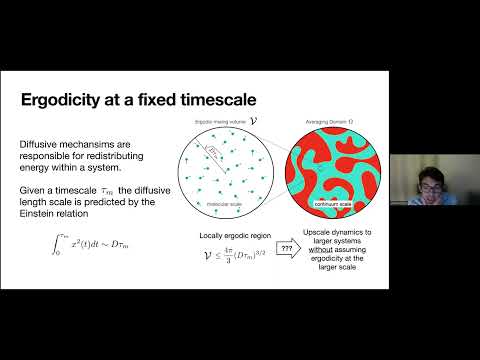Description:
Save Big on Coursera Plus. 7,000+ courses at $160 off. Limited Time Only!
Grab it
Explore a 54-minute lecture on non-equilibrium theory for non-ergodic systems using time-and-space averaging. Delve into the development of a theoretical approach that assumes ergodic conditions only at very small length scales, applicable to many non-ergodic systems. Learn how fluctuations are constrained by internal energy dynamics and how quasi-ergodic requirements can identify valid transport coefficient timescales. Discover the application of this theory to immiscible fluid flow through porous media, explaining non-Gaussian pressure fluctuations caused by capillary events. Understand how macroscopic dynamics can be homogenized by choosing appropriate averaging timescales and how fluid topology changes contribute to non-ergodic effects. Examine the role of time-and-space averages in accounting for discrete changes based on topological residence time. Cover topics such as geometric representation, ergodic theory, scale-consistent thermodynamics, conservation of energy, relative permeability, Darcy's law, and pressure fluctuations in this comprehensive exploration of non-equilibrium thermodynamics for non-ergodic systems.
Read more

Non-equilibrium Theory for Non-ergodic Systems Based on Time-and-Space Averaging
Add to list
#Science
#Physics
#Thermodynamics
#Statistical Mechanics
#Fluid Mechanics
#Fluid Dynamics
#Social Sciences
#Sustainability
#Energy Efficiency
#Energy Conservation
#Mathematics
#Geometry
#Topology
#Porous Media
#Ergodic Theory